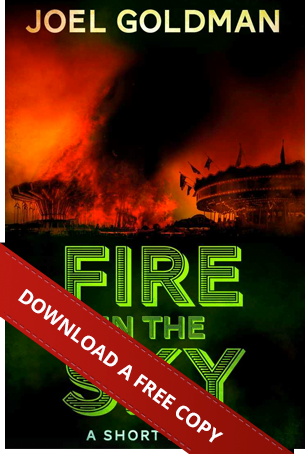 Computer-generated art is hitting the big time. As is computer-generated music. It’s controversial stuff. Some say it’s beautiful, others turn up their noses at masterpieces made by machines, created by analysing images and sounds to identify which best evoke human emotion.
Computer-generated art is hitting the big time. As is computer-generated music. It’s controversial stuff. Some say it’s beautiful, others turn up their noses at masterpieces made by machines, created by analysing images and sounds to identify which best evoke human emotion.
Does it pack an appropriate visual or aural punch? Because art and music are subjective stuff, I guess it’s down to the viewer or listener. But what about computer-generated literature?
The latest innovations are written works fresh from the pen of a canny piece of software called Xapagy. Its initial efforts are pretty basic. They don’t come up the high standard we expect from, say, the best crime fiction novels. But they demonstrate a key step towards man made machines that can actually invent stories fit for human consumption. And it also hints at software that owes much more than a casual nod to human-like artificial intelligence.
University of Central Florida-based Xapagy is currently being fed a rich diet of stories painstakingly translated into its own language, Xapi, by its human partner Lotzi Bőlőni. But unlike most rigid AI systems, instead of using logic-based rules to drive creative actions the software treats them as a series of interconnected events. Then it searches its memory for familiar connections, uses them to predict what should happen next and creates a story.
If it doesn’t identify suitable connections, Xapagy chooses a word that makes grammatical sense and carries on in a vein that makes narrative sense. It’s the narrative bit that breaks the mould, an innovation that might eventually lead to the system actually ‘learning’ about the intricacies of narrative, which is key to human cognition.
Spooky? Undoubtedly. Mind-blowing? Oh, yes. At the moment the system needs to be fed a lot more Xapi story-food before it’ll be able to weave rich tales and dream up entire stories from scratch. But the writing is on the wall… or on the chip.
Will Xapagy ever be able to write lyrical, descriptive, observational narratives like we can? It’s early days and the jury’s still out. In the meantime the task of creating alternate realities as believable as they are beautiful, compelling and entertaining is down to people like Joel. But watch your back, old friend… the machines are coming!
What are your feelings about computer-generated literature, whether its thrill-filled crime novels or Fifty Shades of File Compression?












I truly dislike (hate?) the idea of computer based writing! Horrible. Do we want to totally depend upon machines to do all our creative tasks? Where is the benefit or beauty in that??? My son is a Graphic Designer of the old school, meaning in college he was taught to actually draw, cut and paste, sans computers. Now of course he does use a computer, be also has the talent to express his creative side without using a machine. He is a fine art artist who creates beautiful and original work. I don’t like computer art, though it can fill the bill in a doctor’s office, etc. but I still don’t call it art. We can eliminate the authors and rely on machines, but in doing so how will creative people learn and improve??? I think it is a bad trend and while I’m at it, I do not own nor want a Kindle. I love the feel of a good book in my hands; I hope we never quit publishing them in the traditional way.
I assume we are to believe this is a real concept. I have a hard time doing so when it is supposedly written by a person named Lotzi Bőlőni. That is remarkedly similar to “lotsa baloney” to me, so I wonder to myself, a hoax? Hmmm …
I could not write one sentence of fiction, and I am deeply respectful of people who make that effort with even modest success. I hate that journeyman writers could lose their audience to something that has no desire to create.
I have written a novel, Whispering Crates, about a software program that writes best-sellers.
Professor Bőlőni (of the Xapagy project) is on the level by the way